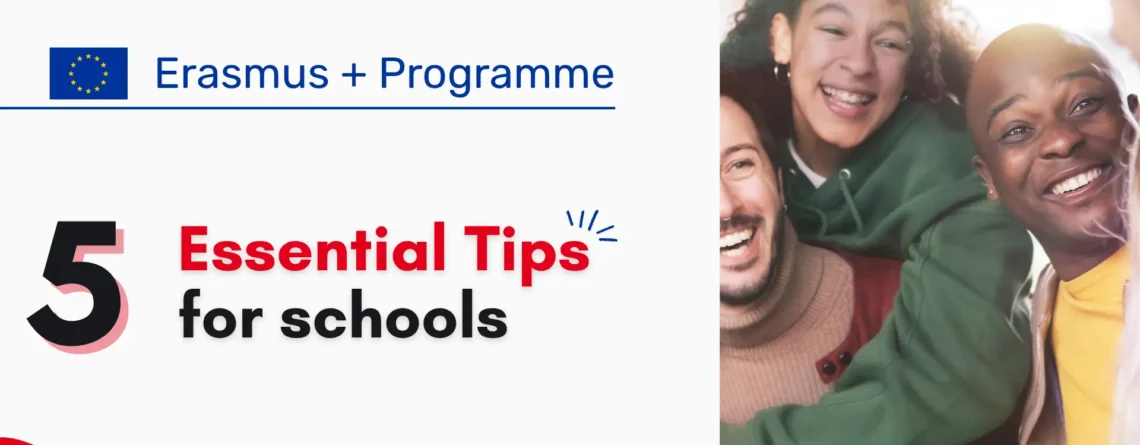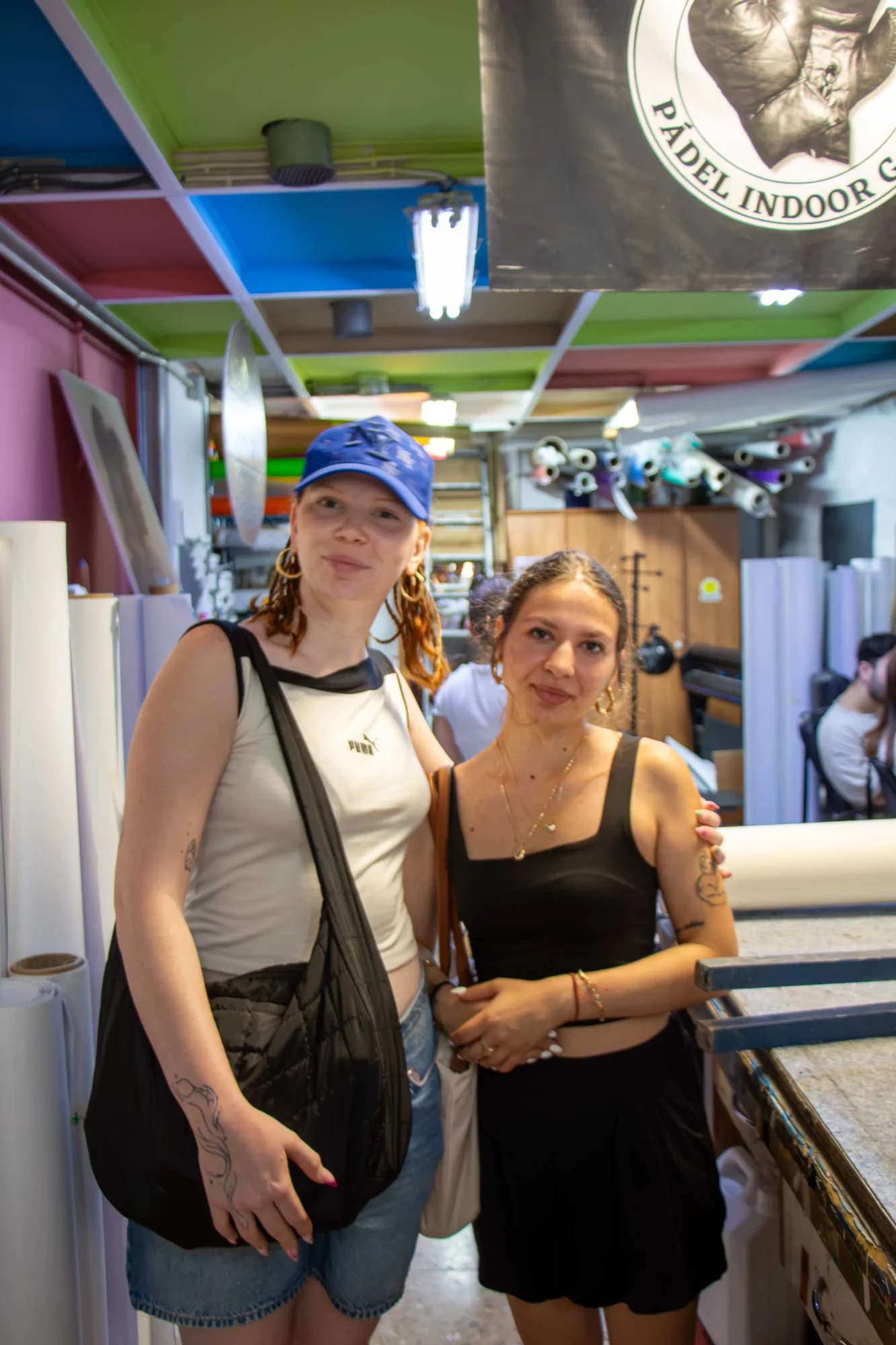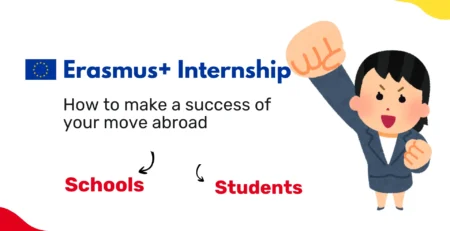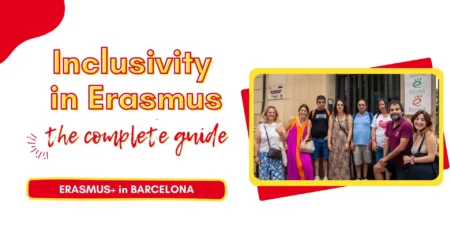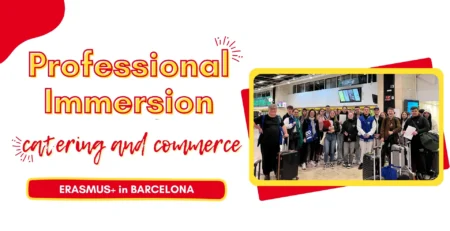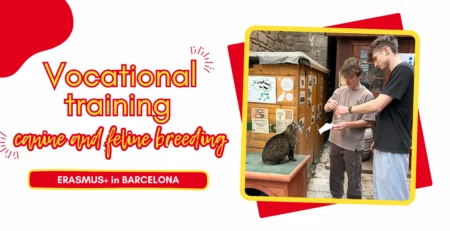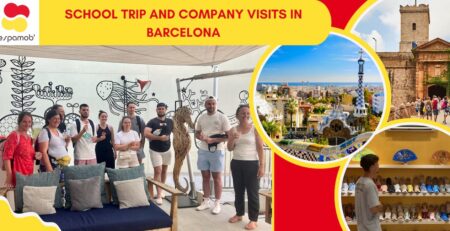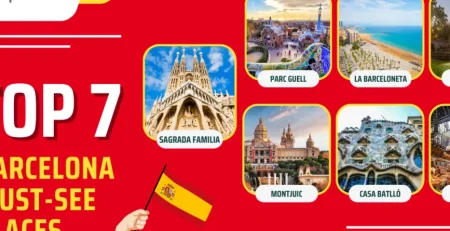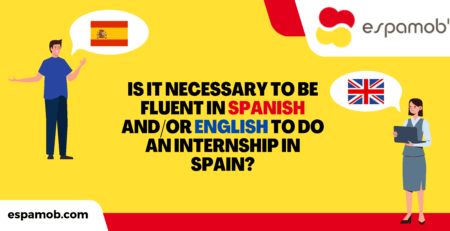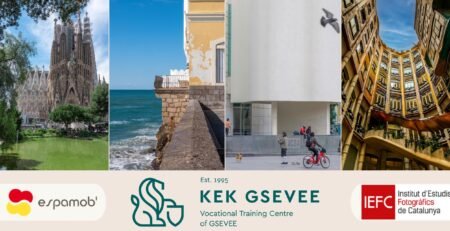Erasmus+ Program: 5 Essential Tips for Schools
Are you in charge of mobility in a high school, a training center, or a vocational school in Europe? Are you preparing a trip within the framework of the Erasmus+ program for your students and looking for a reliable agency in Spain to support you? You’re in the right place!
At Espamob, we have been helping schools since 2005 organize their educational mobilities in Spain through the Erasmus+ program. Our mission is clear: to provide young people with a unique, enriching, and formative experience; a true driver of learning, cultural openness, and the building of a shared European future.
Here, you will discover why working with a specialized local agency can simplify your procedures and guarantee the success of your Erasmus+ project, as well as expert tips if you wish to manage the organization by yourself.
What is the Erasmus+ program?
This program is an initiative of the European Union that supports education, training, youth, and sport at an international level. Launched in 1987 and expanded over the years, it enables pupils, students, teachers, and trainers to experience mobility opportunities across Europe and beyond. Thanks to this scheme, schools can offer their students internships, study stays, or group projects that foster cultural exchange, language learning, and the development of key skills for their professional future.
In short, it is a European Union initiative that promotes international mobility, educational exchanges, and cooperation between students, teachers, institutions, and organizations across Europe and beyond.
What is an Erasmus+ agency in Spain?
An Erasmus+ organization like Espamob is a local partner specialized in hosting European mobility projects. We act as an intermediary between sending schools (across Europe) and host companies or accommodations in Spain for Erasmus+ professional experiences.
Learn More…
Save Time and Reduce Administrative Work
Organizing a mobility project from another country can quickly become a tedious task. We handle all the paperwork, communication with companies, and practical arrangements, while ensuring full compliance with the requirements of the Erasmus+ program KA1 (agreements, learning agreements, certificates, evaluations). This reduces the risk of errors and frees up teaching staff from time-consuming administrative tasks. You thus benefit from complete administrative support, from the preparation of your project to its final evaluation.
A Network of Reliable and Verified Companies
At Espamob, every host company is carefully visited and validated. We maintain a network of high-quality companies across various sectors: commerce, tourism, digital, crafts, and more. These companies welcome students for Erasmus+ internships lasting 2 to 12 months, providing tasks tailored to their professional training or higher education studies. We only select reliable partners who meet safety standards and offer work environments that support students’ professional development.
On-Site Human Support
Our multilingual team is present in several cities across Spain. In case of any issues, whether related to daily life or adapting to the professional environment, we are available to assist students on-site. This local presence provides real peace of mind for students, their families, and the institutions.
Erasmus+ Program: Essential Tips to Successfully Manage Your Mobilities
Tip 1: Plan Your Mobility from the Start
A successful professional experience abroad begins with careful planning. Coordinators should anticipate:

The full project schedule (departure dates, internship duration, administrative deadlines)
Preparation of official documents: agreements, learning agreements, certificates, and evaluations Communication with host companies and partner organizations
Proper planning helps avoid delays, administrative errors, and ensures that each student mobility complies with the educational requirements.
National Erasmus+ agencies also require strict adherence to deadlines (agreements, learning agreements, final reports). Any delay may jeopardize funding or project validation.
👉 Exemple : A high school in France had to reduce its student group from 20 to 12 because some documents were not submitted on time.
Tip 2: Choose Host Companies Carefully
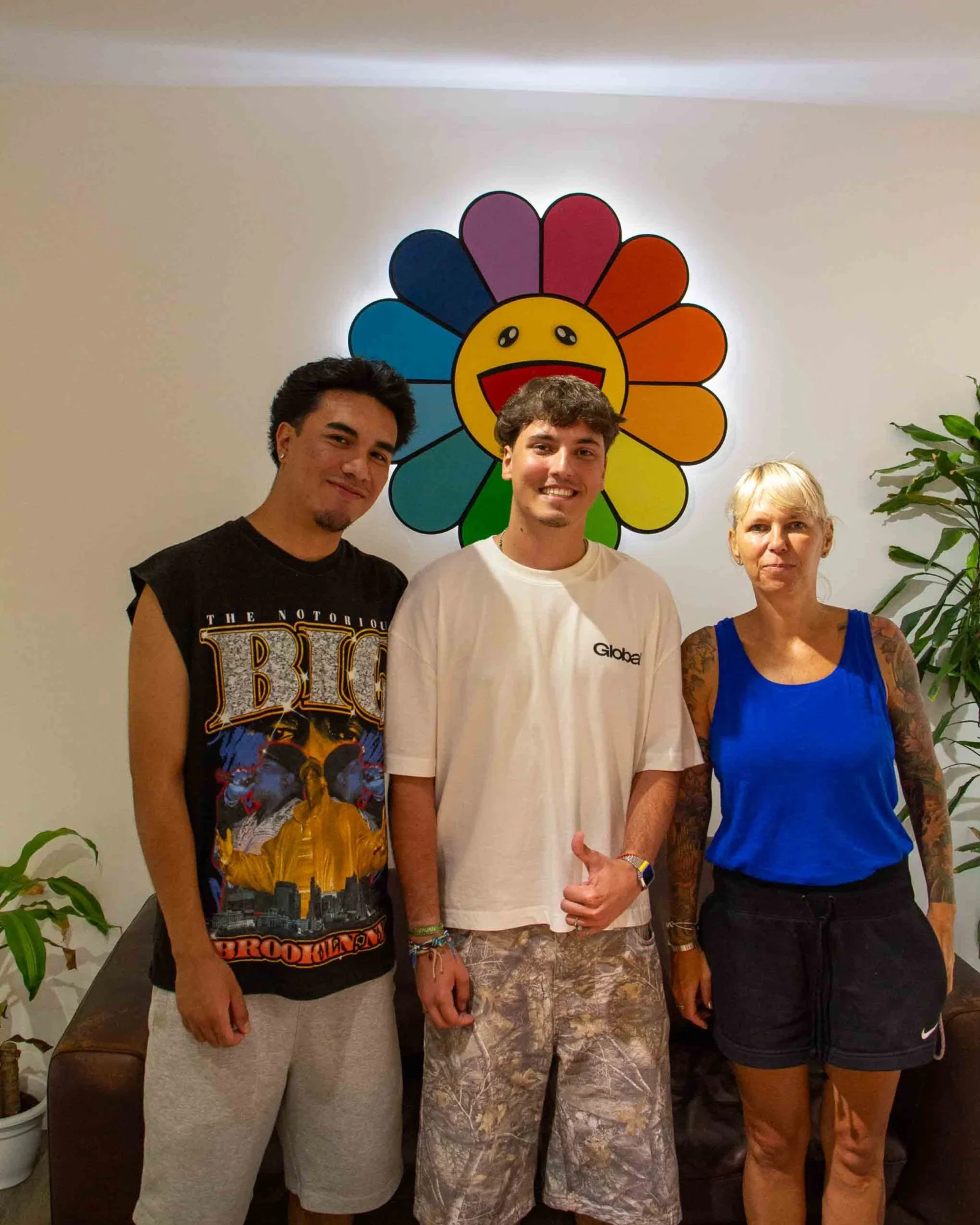
It is not enough to find a company willing to accept interns: the company must also offer internship content that matches the students’ training, be experienced in mentoring young people, and comply with the requirements.
The more specialized the training, the harder it is to find suitable host companies without being on site. We maintain direct contact with them and ensure proper monitoring during the internship in case of any issues.
We only work with evaluated and reliable partners, ensuring that every project turns into a concrete and successful experience.
For a full overview of internship sectors, you can visit this page.
👉 Example : Many companies in Spain do not speak English or French fluently. Without proper guidance, this can complicate daily communication and compromise the evaluation of student skills at the end of the internship.
Tip 3: Prepare Students Before and During Their Stay
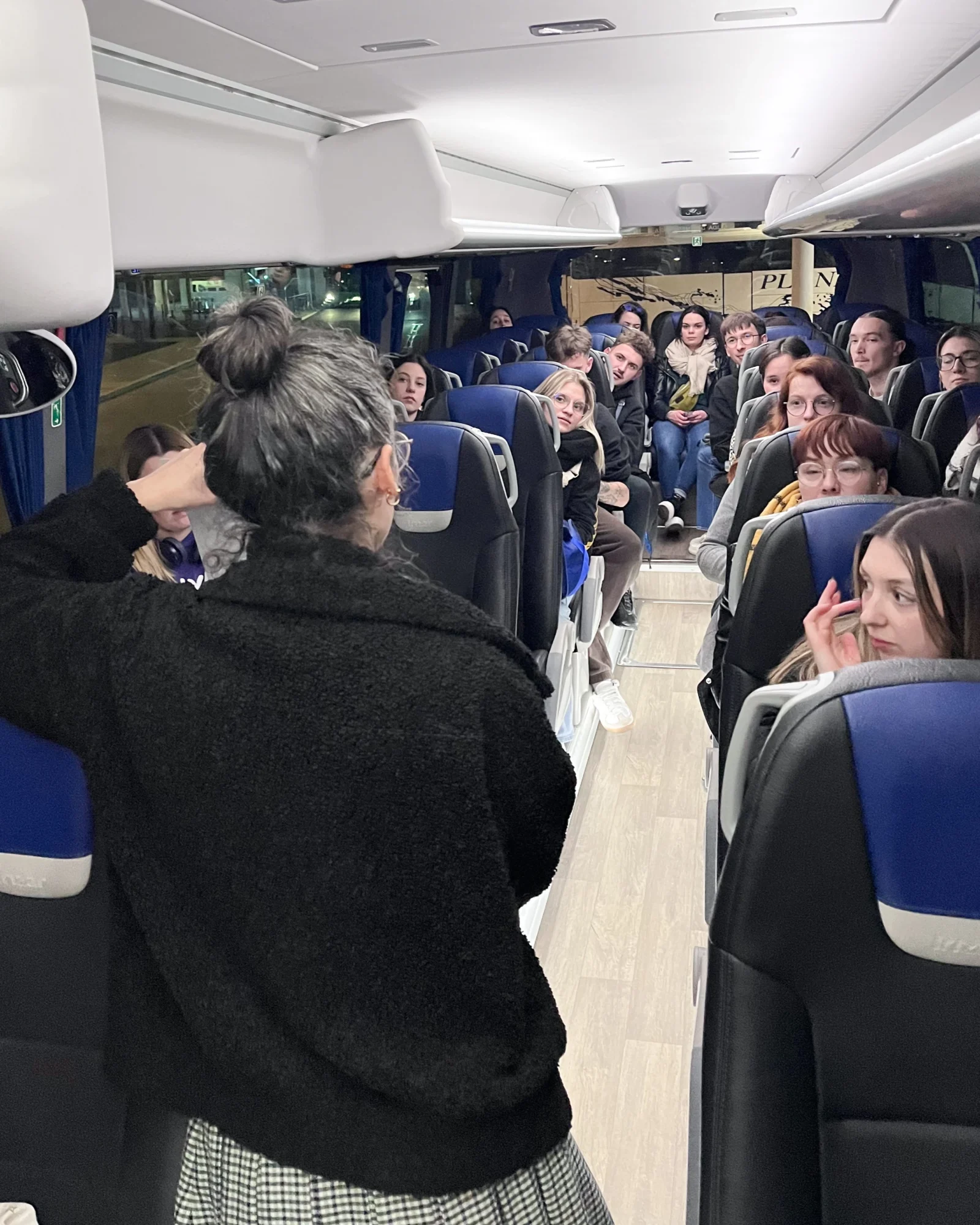
An internship abroad can be challenging due to language barriers, cultural differences, or a new work rhythm. Language and intercultural preparation in advance significantly reduces the risk of dropouts or adaptation difficulties.
At Espamob, as soon as students arrive at the airport or train station, we always take a moment to remind them of the purpose of an Erasmus+ program experience: to commit seriously to the company, remain curious, and be open to Spanish and Catalan culture. This mindset is essential to fully benefit from this unique experience.
👉 Example: Before departure, you can offer an introductory course on the Spanish language and culture so that students can better envision their future professional environment.
Tip 4: Manage Logistics with Precision
We anticipate every logistical detail so that students and teachers can experience their stay without unnecessary stress.
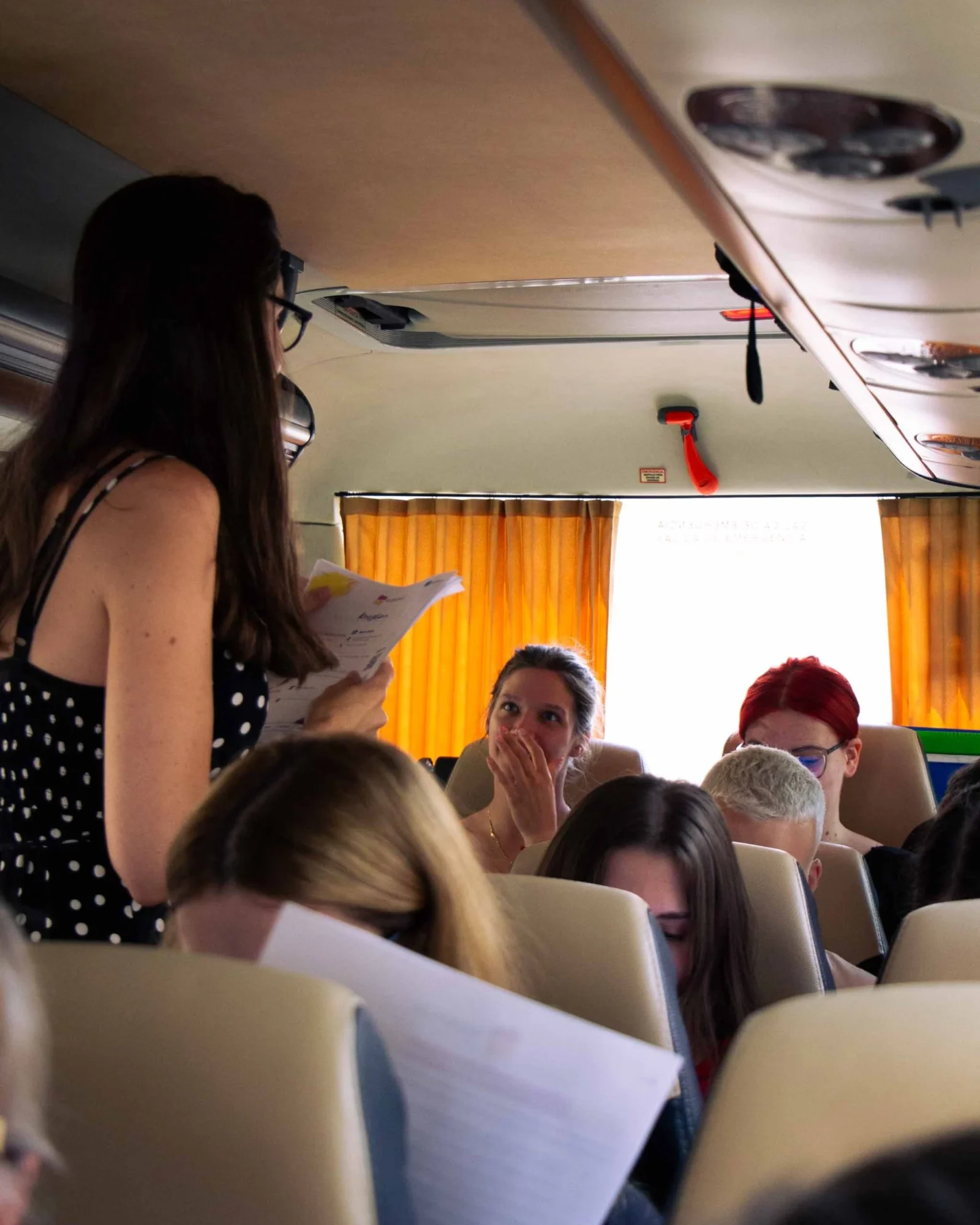
👉For example, transport tickets are always booked in advance: upon arrival, students can board the bus or train directly, without worrying about lines or unexpected issues. We also provide transport cards for the entire duration of their stay, allowing them to move around safely and reach their host company on time.
When organizing independently, careful planning of all logistical details is essential. While transport tickets are often only available for purchase on site, you can research the location of local transport agencies in advance (for example, TMB in Barcelona). It’s important to check the distance between the accommodation and the host company to prevent potential issues such as absenteeism.
Prepare a support guide for students including transport apps, important contacts, hospital locations, and emergency numbers.
Even minor oversights can disrupt the first days of the internship and impact the relation between the student and the company.
Tip 5: Monitoring and Evaluations
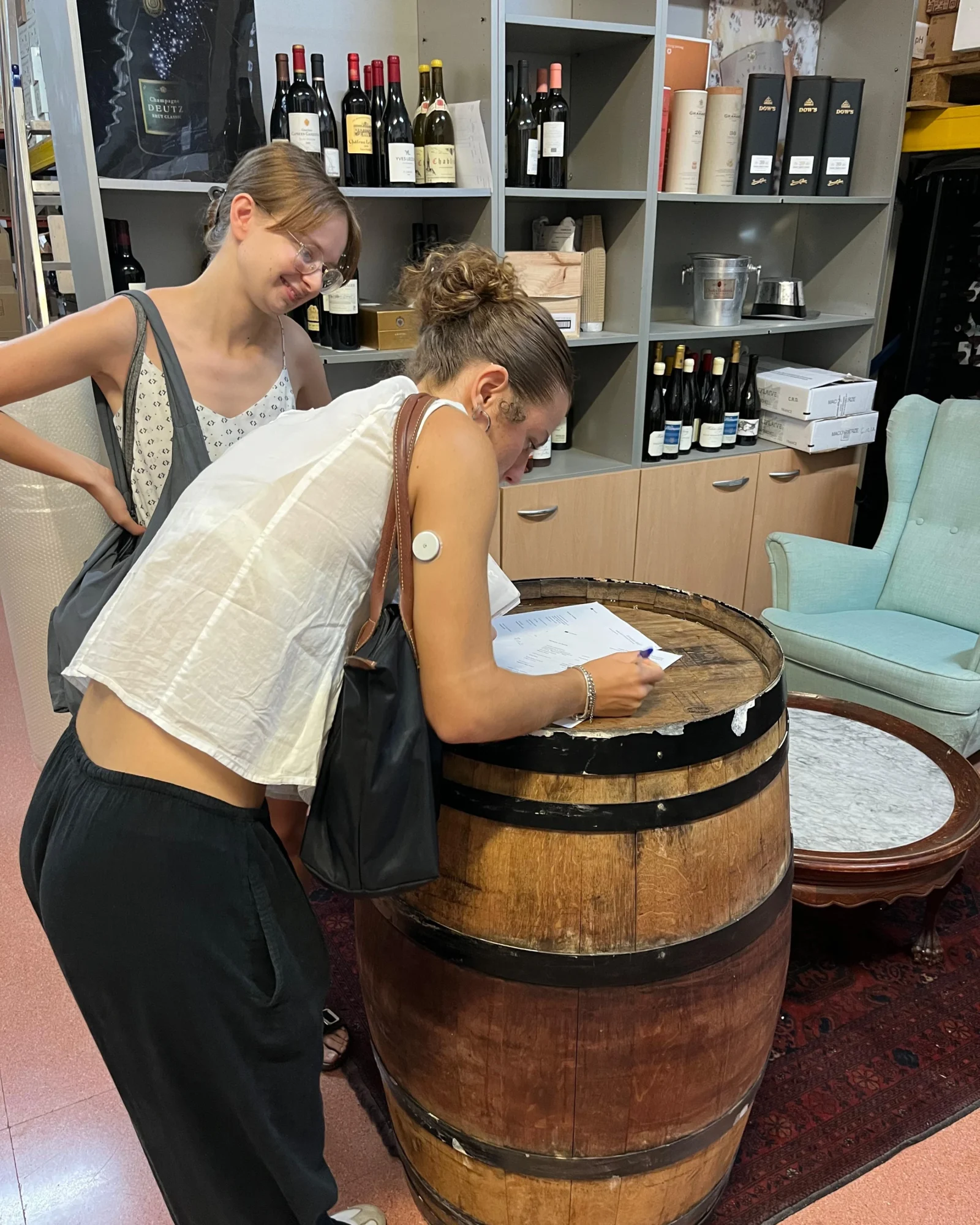
National institutions require accurate reports and proof of the experience (certificates, photos, evaluations). Monitoring should be done throughout the mobility, not only at the end.
👉 Example: If you want to organize without an agency, you can set up a WhatsApp group with their students to regularly check on their integration and easily collect evidence to include in the final report.
We also share student feedback and photos on our social media channels, which we can provide to you easily!

Where We Operate in Spain ?
Espamob is present in four key destinations in Spain, adapting to each student’s needs and the requirements of their institutions:
- 🇪🇸 Barcelona: A dynamic city, ideal for a wide range of fields including innovation, digital, commerce, and design.
- 🇪🇸 Valencia: Known for opportunities in hospitality, catering, and tourism, but it also offers many other professional sectors.
- 🇪🇸 Majorca: A Mediterranean island perfect for service, animation, and reception jobs. Other sectors are also available, just ask us!
- 🇪🇸 Tenerife: A tropical setting offering professional experiences mainly in tourism and hospitality.
🔗 Learn more about Erasmus+ mobility experiences in Barcelona here.
Who Can Use Our Erasmus+ Agency Services?
We work with all types of European institutions involved in Erasmus+ program mobilities:
-
- High schools and vocational training centers
- Higher education institutions (BTS, IUT, etc.)
- Work-study training centers (VET schools)
- CFA or continuing education organizations
- Schools across Europe (France, Italy, Poland, Portugal, Germany, etc.)
- Erasmus+ coordinators responsible for managing mobility files within their institutions
Whether you are organizing your first Erasmus+ program project or are already experienced in international mobility, we support you through every step of your mobility.
Why Choose Spain?
Spain is one of the most popular destinations for studying or working abroad, and for good reasons. First, its pleasant climate, warm culture, and affordable cost of living make it an ideal location for students participating in an Erasmus+ program. Beyond tourism, Spain also offers numerous professional opportunities. Thanks to a wide network of host companies, students can develop practical skills in areas as diverse as tourism, hospitality, digital marketing, craftsmanship, and many more. An Erasmus+ program stay in Spain also helps students enhance their employability within the EU, improve their language skills in Spanish or English, and gain valuable independence for their future careers. It is also an opportunity to open their minds to a new European culture, a crucial element of the student mobility experience.
Image gallery
Conclusion
The European mobility program offers students a unique opportunity to develop their professional, language, and intercultural skills while discovering new cultures. Organizing an Erasmus+ program requires careful planning, preparation, and monitoring, but the benefits for both students and the institution are significant. Working with a local partner like Espamob allows you to manage every step of your project: planning, finding host companies, logistics, on-site support, and administrative assistance. This way, each mobility becomes a rewarding, safe, and fully compliant Erasmus+ program experience, maximizing both the educational and personal impact for your students.
🎯 Preparing for a mobility ?
Get in touch with us
FAQ – Erasmus+ Program in Spain
Erasmus mainly covers university exchanges within Europe.
The Erasmus+ program is broader, including pupils, students, teachers, and trainers, as well as international educational and sports projects (for example, internships abroad!).
In short, Erasmus+ builds on Erasmus and offers more opportunities for everyone.
The Erasmus+ program is open to pupils, students, teachers, trainers, and young adults in Europe, as well as to institutions and organizations participating in educational, professional, or sports projects.
🔗 Learn more: Who can participate in the Erasmus+ Programme? | Erasmus+ Europa
The Erasmus+ program grant for an internship in Spain depends on the sending country, the type of mobility (internship or studies), and the duration of the stay.
For schools, this support is calculated per student based on allowances set by the European Commission and managed through national agencies.
🔗 Useful links to estimate grants and allowances
For the 2021–2027 period, the total budget of the Erasmus+ program is approximately €26.2 billion, allocated by the European Union.
This funding can cover all or part of the costs for transport, accommodation, training, or activities related to the projects.
Erasmus+ program projects are selected based on:
– Participant eligibility:(participants must belong to a participating institution or organization.)
– Project relevance (development of skills, cultural openness, European cooperation.)
– Quality of preparation (clear educational objectives, defined partners, and logistics.)
– Expected impact (benefits for participants and the institution)
– Administrative compliance (adherence to rules, deadlines, and funding management.)
🔗Learn more

